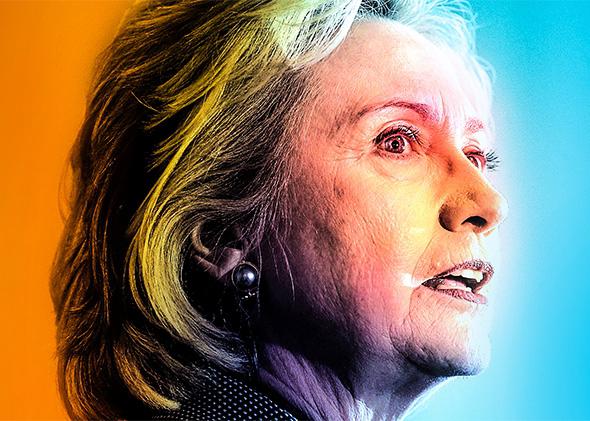When most of us get inundated with emails from foreign countries, we rely on our spam filter. It turns out Hillary Clinton created an entire separate email account. On Monday, the New York Times reported that while Clinton was secretary of state, she used a private account for all of her official correspondence. The Washington Post reported that the account was set up the day of Clinton’s confirmation hearing.
That appears to be an end-run around federal government regulations as of 2009. It has immediate political resonance because the details animate an existing storyline about Bill and Hillary Clinton: They live by their own rules and are always hiding something.
Here is the rule: According to the 2009 National Archives and Records Administration regulations in effect when Clinton took office, “Agencies that allow employees to send and receive official electronic mail messages using a system not operated by the agency must ensure that Federal records sent or received on such systems are preserved in the appropriate agency recordkeeping system.”
So the question isn’t whether Clinton was allowed to have a private email account: She was, as secretaries before her were as well. The question is whether she was allowed to be the steward of the archives. The 2009 regulation contradicts Clinton’s spokesman when he claims: “Both the letter and spirit of the rules permitted State Department officials to use nongovernment email, as long as appropriate records were preserved.”
The regulations require the information to be saved in the agency system, not simply that they are preserved. So the letter of the law doesn’t seem to have been followed. How quickly did they need to be transferred? More quickly than six years after she started her tenure. Jason Baron, the former director of litigation at the National Archives, in an interview with Steve Chaggaris of CBS, said the intent of the regulations were not followed, but that Clinton was not subject to any individual liability.
What about the spirit? I remember an Obama administration obsessed with transparency in 2009. I also remember a late-breaking Bush administration scandal about private email accounts being used to do public business. That’s not the spirit the Clinton spokesman is talking about, but the spirit in the moment was to keep everything within a system that could be checked and called on by congressional investigators and Freedom of Information Act requests.
This makes sense: When it comes time to collect the records, the government wants them in a secure place where they control the content, not the author whose motivations for archival constancy may be more lax or at odds with impartial observers. Update, March 4: And sure enough, the New York Times reports, when investigators asked for emails, the State Department didn’t turn over everything because officials there didn’t know about Clinton’s private accounts.
In this case, the Clinton team says they weren’t hiding anything. They were told to preserve the email, they did, and when asked to turn over 55,000 pages to the State Department and thousands of pages to the Benghazi committee, they handed them over. (The State Department request was sent to all former secretaries of state in compliance with a 2014 law that tightened up record-keeping requirements) Were those all the relevant emails? We have to take the Clinton team at its word. House investigators are skeptical.
Clinton will have to answer all these questions sooner or later, either to the House committee investigating the Benghazi attack or to the press. A cache of private emails unreleased is like Mitt Romney’s unreleased tax returns—a nagging question of disclosure that goes beyond a simple discussion of transparency. It picks at one of the candidate’s vulnerabilities. In Romney’s case, talking about the tax returns was another way of talking about Romney’s wealth and disconnect from regular people. It invited the claim, made by none other than former Senate Majority Leader Harry Reid, that Romney paid no taxes, and that’s why he didn’t want to release his returns. Given that standard, it’s perfectly fine for current Senate Majority Leader Mitch McConnell and other prominent Republicans to claim that the one email Clinton doesn’t turn over contains the secrets of what she was doing the night of the Benghazi attack and the location of Jimmy Hoffa’s body. Talking about emails is a way of talking about whether Clinton is trustworthy.
It’s tempting to say that in its response to this revelation that the Clinton campaign is sending all kinds of bad signals about what a Clinton White House would look like. Because Hillary Clinton has been in the White House and carries with her the black SUVs, Secret Service protection, and other trappings of political stardom, she has the posture of a president more than any other candidate. It’s easier to see what she does as an approximation of what she will do.
But while she may look like a president, she’s still not officially a candidate. Thus, as tempting as it would be to draw big conclusions about an aloof candidate who will be an aloof make-her-own-rules president, we’re not technically there yet. But this episode, like others before it, raises the bar for what her campaign needs to do to respond to legitimate questions about how she has acted and how she will act. Because Clinton seems to have operated outside the lines here—or at least blurred them—and her team’s defense of her actions raises more questions than it answers.
